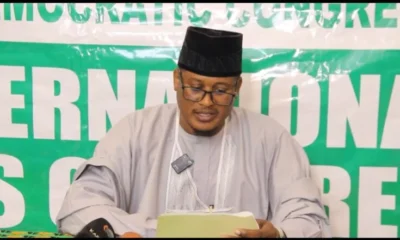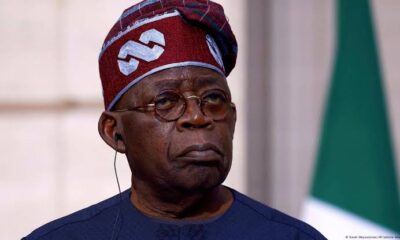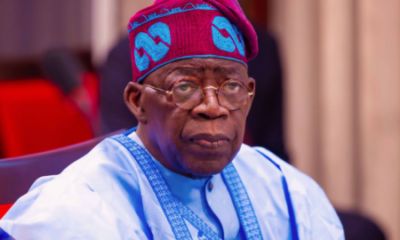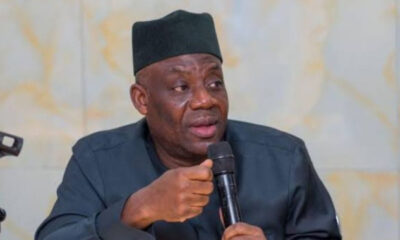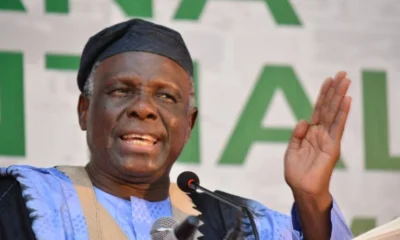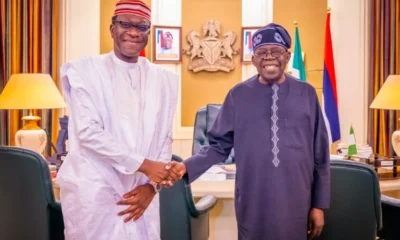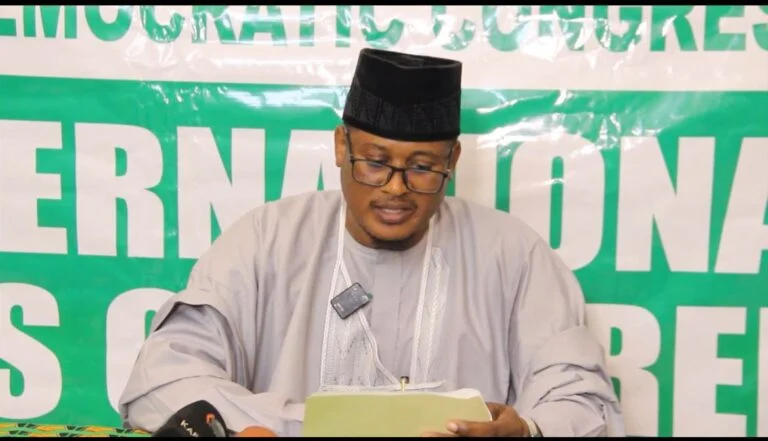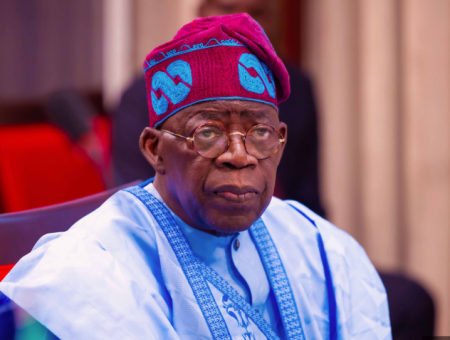The Organisation of the Petroleum Exporting Countries (OPEC) has expressed confidence that the Dangote Petroleum Refinery can help reduce petrol prices in Nigeria.
At the same time, the refinery is urging the Federal Government to fully implement the naira-for-crude deal by supplying it with adequate feedstock to support its ramp-up plan.
Officials from the $20bn Lekki-based refinery, who spoke on the condition of anonymity, called on the Federal Government to ensure the facility receives enough crude for the benefit of the nation.
They noted that OPEC must have conducted thorough research on the refinery and its potential positive impact on Nigeria’s petroleum market, given how it has already reduced the prices of diesel and Premium Motor Spirit (“petrol”) while helping to eliminate the frequent occurrences of fuel scarcity.
The Crude Oil Refinery Owners Association of Nigeria echoed OPEC’s belief in the ability of Dangote and other refineries to provide Nigerians with affordable fuel.
The Dangote refinery, with a capacity of 650,000 barrels per day, is the largest single-train refinery globally. Alhaji Aliko Dangote, President of the Dangote Group, had stated that the refinery could meet Nigeria’s fuel needs and would also export to other nations.
Aliko further emphasized that the refinery would end the importation of refined petroleum products, questioning how an oil-producing nation like Nigeria could rely on “dirty” imported fuel for its energy requirements.
Since the refinery began operations in January 2024, it has reduced the price of diesel from around N1,700 to N1,000 per litre. More recently, it also lowered the ex-depot price of PMS from N950 to N890 per litre.
In its February Monthly Oil Market Report, OPEC said the Dangote refinery could help stabilise the supply of petroleum products as it ramps up production. The $20bn refinery is currently ramping up production to hit its full capacity.
Recently, the Vice President of the Dangote Group, Davakumar Edwin, disclosed that the refinery is currently at 550,000 capacity, saying it could attain its full capacity by March or thereabouts.
In its report, OPEC disclosed that the oil sector remains central to the Nigerian economy even though the non-oil sector plays an increasingly important role in driving growth.
According to OPEC, after the Nigerian economy recorded healthy growth in the third quarter of 2024 across key sectors, economic growth is anticipated to have been steady in 4Q24 as well.
It added that economic growth reached 3.5 percent year-on-year in 3Q24, up from 3.2 percent year-on-year in 2Q24.
“This came despite the impact of tightening monetary policy, with the non-oil sector playing an increasingly important role in driving growth, supported by easing price pressures and a potential loosening of tight monetary policy.
“However, the oil sector remains central to the economy, and the Dangote Refinery reaching full production capacity should help stabilise the petroleum product supply and possibly lower petrol prices,” the report said.
Meanwhile, as the refinery targets its full production capacity, low local crude supply has remained a major challenge. As Nigeria’s refining capacity increases, the 450,000 barrels of crude oil allocated for local refineries is no longer enough.
Recently, the Nigerian Upstream Petroleum Regulatory Commission revealed that the Dangote refinery, the Port Harcourt refinery, and six others would need 770,500 barrels for daily fuel production.
NUPRC data sourced from the Nigerian Midstream and Downstream Petroleum Regulatory Authority puts the country’s refining capacity at 974,500 barrels per day. The NUPRC estimated that eight refineries would need 123.5 million barrels of crude oil in the first six months of 2025.
The refineries are: the Dangote refinery, Port Harcourt refinery, Warri refinery, Kaduna refinery, Opac refinery, Waltersmith refinery, Duport Midstream Company Limited, Aradel refinery, and Edo refinery.
According to the crude oil production forecast of producing oil companies and the refining requirement of functional refineries in Nigeria signed by the NUPRC Chief Executive, Gbenga Komolafe, the Dangote refinery is forecasted to need 550,000 barrels of a blend of Nigerian crude oil daily, 17.05 million barrels monthly, and 99.55 million barrels between January and June 2025.
Opac refinery requires 5,000bpd; Waltersmith needs 4,500bpd; Duport needs 2,000bpd while Edo refinery requires 1,000bpd. Others are Aradel refinery, 7,000bpd; Port Harcourt refinery, 60,000bpd; Warri refinery, 75,000bpd, and Kaduna refinery, 66,000bpd.
Recall that in July 2024, President Bola Tinubu ordered the NNPC to sell crude oil to local refineries in naira. In October, the committee supervising the naira-for-crude deal commenced the sale of crude to only the Dangote refinery in naira, saying it would sell to only petrol-producing refineries.
However, with the Port Harcourt and Warri refineries coming on stream, more refineries would be considered for the naira-for-crude arrangement. To avoid having its ramp-up plans disrupted, the refinery is looking elsewhere for its crude, importing 12 million barrels from the United States lately.
Already, the refinery is building eight more tanks to stockpile imported crude oil as local supplies become unreliable. Officials of the refinery were quoted as saying that low crude supply from the Nigerian National Petroleum Company Limited “is driving import dependence.”
The building of eight additional tanks will increase crude storage capacity at the refinery by 41.67 per cent to 3.4 billion litres.
“Importing crude from other countries instead of buying locally means that our crude stockpiles will have to be higher,” Vice President Edwin had said.
Speaking with our correspondent, a consultant with the Dangote refinery who did not want to be mentioned, called on the Federal Government and the committee supervising the naira-for-crude deal to do the right thing.
“OPEC knows what it is saying, they must have done their research well before making projections. We all can see how the refinery crashed the price of diesel. It recently reduced the price of PMS and eliminated the year-long fuel queues in filling stations, especially during yuletide. They know what they are saying.
“The thing is that let the local actors do the right thing. OPEC has its reasons for making that projection. Let the local actors behave and stop playing games. They tell the people that they are giving refineries crude for naira but they are playing games.
“So, what we are saying is that all things considered, it (OPEC projection) will come to pass. That’s it,” the consultant stated.
Another inner source told our correspondent that though prices of petroleum products are determined by various factors, enough local crude supply would aid the availability and affordability of fuel across the nation.
“Nobody fixes the price and that’s why it keeps changing. However, enough local crude supply will aid affordability. That’s why we are calling on the Federal Government to ensure the naira-for-crude policy achieves its objectives.
“We have said it before, what we get from the committee is below what we requested. But we can only appeal to them to look into this for the good of all Nigerians,” the source said.
The Publicity Secretary of CORAN, Eche Idoko, explained that in the refining business, the larger the quantity refined, the lower the product cost.
“I agree with OPEC. It’s purely based on the economics of scale. In refining, the larger the quantity you refine the cheaper the cost and the more the yield. Consequently, the better the margins,” Idoko stated.
However, he added that Nigeria should not have crude challenges considering the abundant oil reserves.
“Ideally, we shouldn’t have crude challenges. We have abundant provable reserves of sweet crude in the country, and with the recent progress made with the domestic crude supply obligation as enshrined in the Petroleum Industry Act, we can not but hope for a bright prospect for domestic refining in Nigeria,“
While saying inflation remains high, OPEC maintained that early signs of cooling have emerged, partly due to base effects from the naira’s devaluation.
It added that the Central Bank of Nigeria appears to be nearing the end of its tightening cycle, following its rate hikes in the second half of 2024 with the key policy rate standing at 27.5 percent.
“Consequently, real interest rates remain deeply negative. Inflation rose to 34.9 per cent, y-o-y, in December, following 34.6 per cent, y-o-y, in November and 33.9 per cent, y-o-y, in October. The S&P PMI remained at an expansionary level of 52 in January, compared with 52.7 in December,” the report said.
In its short-term prospects for product markets and refinery operations, OPEC revealed that there is upside potential for new product volumes entering international markets from Dangote refinery and Yulong petrochemical, Olmeca, lengthening product balances going forward, particularly for gasoline.
OPEC Quota
The ability of the country to meet the quota set for it by OPEC might be a good signal toward more crude supply to local refineries. In January, Nigeria made real its focus to ramp up oil production, raising average daily crude output to 1,538,697 barrels per day, which is 103 percent of the OPEC quota.
This is also about 39,000 barrels above the 1.5mbpd set for the oil-producing country by OPEC. The PUNCH reports that Nigeria has failed to meet the crude oil production quota approved by OPEC throughout 2022, 2023, and 2024.
According to the NUPRC, oil production, including crude and condensate, rose to 1.74mbpd in January, up from 1.6mbpd in December. However, this is below the 2mbpd target of the commission for the year.
The regulator’s data disclosed that the lowest and peak production in January were 1.66mbpd and 1.79mbpd respectively.
“The daily average production in January was 1,737,480 barrels per day, consisting of both crude oil (1,538,697bpd) and condensate (198.783bpd). The average crude oil production was 103 per cent of OPEC quota (1.5 mbpd),” the NUPRC stated.
For years, crude oil theft, and pipeline vandalism, among other factors, stopped the country from meeting its OPEC oil production quotas.
But the Minister of State for Petroleum Resources (Oil), Heineken Lokpobiri, expressed confidence that Nigeria could hit 3mbpd this year.
The oil minister had insisted that Nigeria would follow the ’Drill, baby drill’ slogan of the United States President, Donald Trump, to ramp up production.

 BIG STORY3 days ago
BIG STORY3 days ago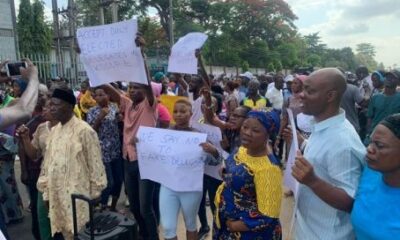
 BIG STORY3 days ago
BIG STORY3 days ago
 BIG STORY3 days ago
BIG STORY3 days ago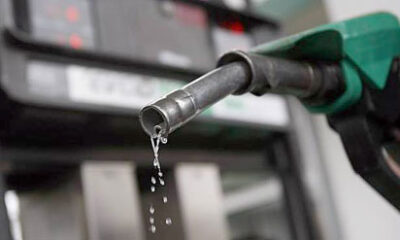
 BIG STORY22 hours ago
BIG STORY22 hours ago
 BIG STORY2 days ago
BIG STORY2 days ago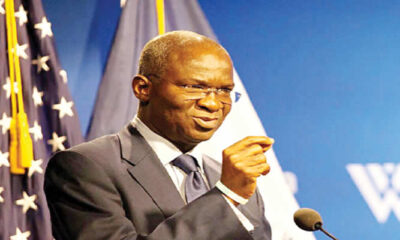
 BIG STORY1 day ago
BIG STORY1 day ago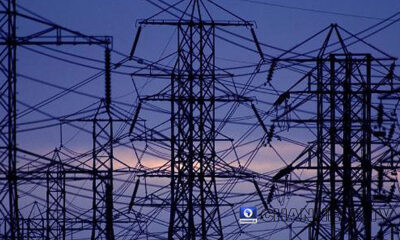
 BIG STORY3 days ago
BIG STORY3 days ago
 BIG STORY3 days ago
BIG STORY3 days ago







